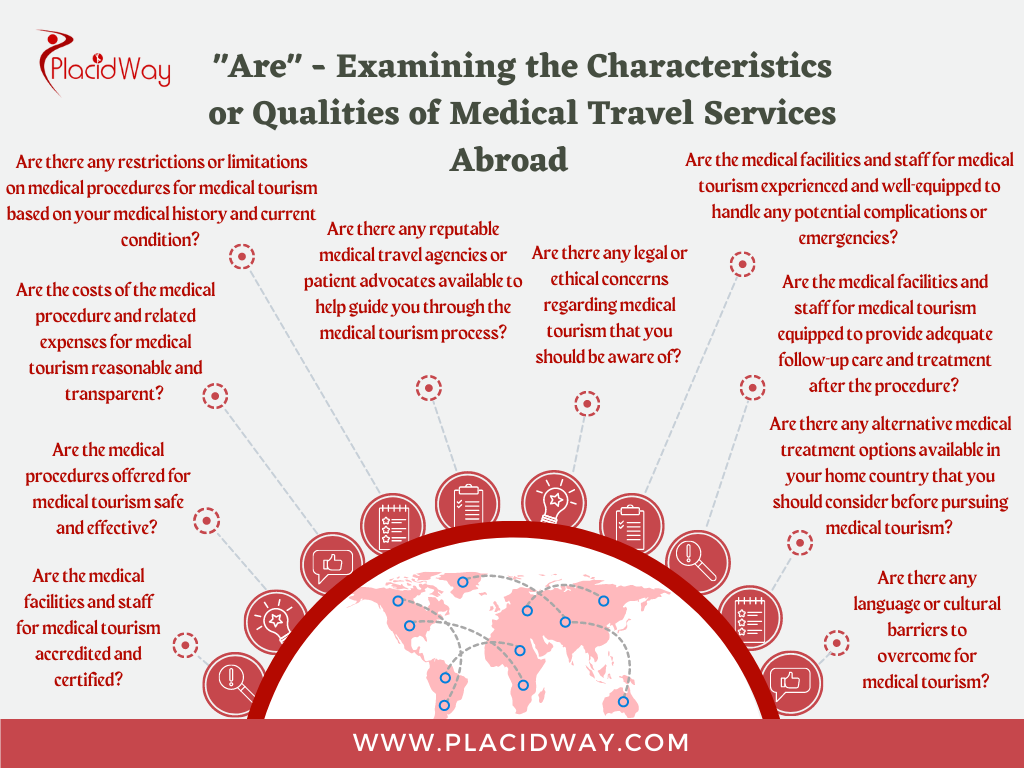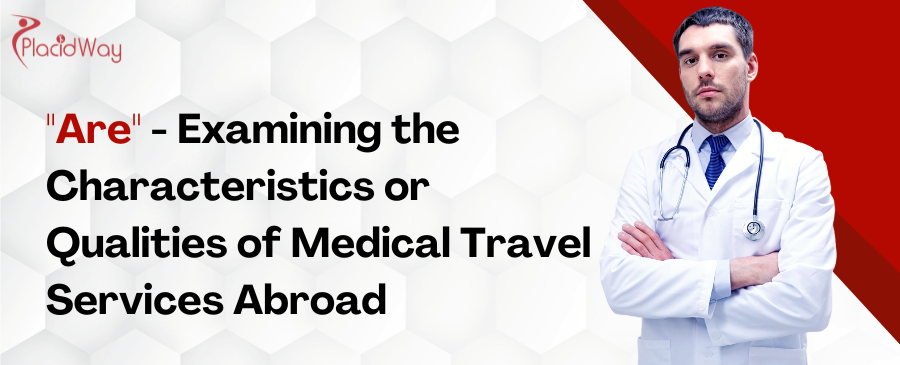Part 10 of Series: Answering the Top 100 Questions of International Patients in Medical Tourism
Welcome to our comprehensive guide on medical travel services abroad. In this guide, we will explore various aspects of medical tourism that will help clinics understand their patients' needs and generate more leads. Patients considering medical tourism want to make informed decisions, understanding the available options, risks involved, and whether it is the right choice for them. By addressing the following questions, clinics can gain valuable insights and effectively cater to their patients' requirements.

Certainly! Let's delve into each question and provide a detailed explanation of the answers:
Are the medical facilities and staff for medical tourism accredited and certified?
Patients seeking medical travel services abroad prioritize their safety and quality of care. Accreditation and certification are crucial indicators of a clinic's adherence to international standards and best practices. Clinics should ensure that their facilities have obtained accreditation from recognized organizations, such as Joint Commission International (JCI) or the International Organization for Standardization (ISO). Similarly, the medical staff should possess appropriate certifications and qualifications in their respective fields. By being accredited and certified, clinics can instill confidence in patients that they will receive reliable and high-quality healthcare services.
Are the medical procedures offered for medical tourism safe and effective?
Patients considering medical tourism are concerned about the safety and effectiveness of the procedures they undergo. Clinics should provide comprehensive information about the procedures, including success rates, potential risks, and long-term outcomes. Sharing data from clinical studies or research can help patients make informed decisions about whether a particular procedure aligns with their healthcare goals. Additionally, clinics should prioritize patient safety by adhering to established protocols, using advanced technologies, and following evidence-based practices.
Are the costs of the medical procedure and related expenses for medical tourism reasonable and transparent?
Transparency in pricing is crucial for patients considering medical tourism. Clinics should provide a clear breakdown of the costs involved in the medical procedure, including surgical fees, hospital charges, anesthesia, and any additional services. It is important to avoid hidden costs or unexpected expenses to ensure patients can accurately assess the financial implications. Transparent pricing helps patients make informed decisions and compare options across different clinics, ultimately enhancing trust and satisfaction.
Are there any restrictions or limitations on medical procedures for medical tourism based on your medical history and current condition?
To ensure patient safety, clinics should conduct thorough assessments of each patient's medical history and current condition. Some medical procedures may have specific restrictions or limitations based on factors such as age, pre-existing health conditions, or medications. By conducting comprehensive evaluations, clinics can provide personalized recommendations and help patients understand their eligibility for specific procedures. This approach minimizes the risks associated with undergoing procedures that may not be suitable for certain individuals.
Are the medical facilities and staff for medical tourism experienced and well-equipped to handle any potential complications or emergencies?
Patients seek reassurance that clinics can handle potential complications or emergencies that may arise during or after a medical procedure. Experienced medical staff and well-equipped facilities are essential in ensuring patient safety. Clinics should emphasize the qualifications, expertise, and experience of their medical professionals, highlighting their ability to handle unexpected situations. Additionally, having advanced medical technologies, robust emergency response protocols, and access to specialized healthcare resources further strengthens patient confidence in the clinic's ability to address any complications effectively.
Are the medical facilities and staff for medical tourism equipped to provide adequate follow-up care and treatment after the procedure?
Continuity of care is vital for patients undergoing medical procedures abroad. Clinics should outline their post-procedure care protocols, including follow-up appointments, monitoring, rehabilitation, and any necessary ongoing treatment. Providing comprehensive post-procedure care ensures optimal patient recovery, minimizes complications, and enhances patient satisfaction. Clear communication with patients regarding the availability and accessibility of follow-up care is essential to ensure a seamless treatment journey.
Are there any legal or ethical concerns regarding medical tourism that you should be aware of?
Clinics should educate patients about any legal or ethical concerns associated with medical tourism. This includes informing patients about the legal framework governing medical procedures in the destination country, patient rights and responsibilities, and potential ethical considerations. Ensuring patients are aware of their rights and protections empowers them to make informed decisions and safeguards against any potential ethical or legal challenges that may arise during their medical travel experience.
Are there any language or cultural barriers to overcome for medical tourism?
Effective communication is crucial for successful medical tourism experiences. Clinics should address potential language or cultural barriers by providing language interpretation services or hiring multilingual staff. Patient materials, including consent forms and medical records, should be available in the patient's preferred language. Culturally sensitive care, including understanding patient preferences and customs, fosters trust and facilitates clear communication between patients and healthcare providers, ultimately enhancing the patient experience.
Are there any alternative medical treatment options available in your home country that you should consider before pursuing medical tourism?
Before patients commit to medical tourism, clinics should encourage them to explore alternative medical treatment options available in their home country. This could include considering other healthcare providers, seeking second opinions, or exploring specialized clinics closer to their residence. By encouraging patients to thoroughly evaluate local alternatives, clinics demonstrate a commitment to patient-centered care and help patients make well-informed decisions that align with their individual circumstances.
Are there any reputable medical travel agencies or patient advocates available to help guide you through the medical tourism process?
Navigating the medical tourism process can be overwhelming for patients. Collaborating with reputable medical travel agencies or patient advocates can provide valuable support and guidance. These organizations can assist patients with travel arrangements, accommodation, appointment scheduling, and other logistical aspects of their medical travel experience. By partnering with trusted agencies or advocates, clinics streamline the process for patients, improve their overall experience, and build a positive reputation in the medical tourism industry.
By addressing these questions in-depth, clinics can effectively understand their patients' needs and provide the necessary information and support to generate more leads in the competitive field of medical tourism.
Join PlacidWay Now and experience world-class medical care abroad!


